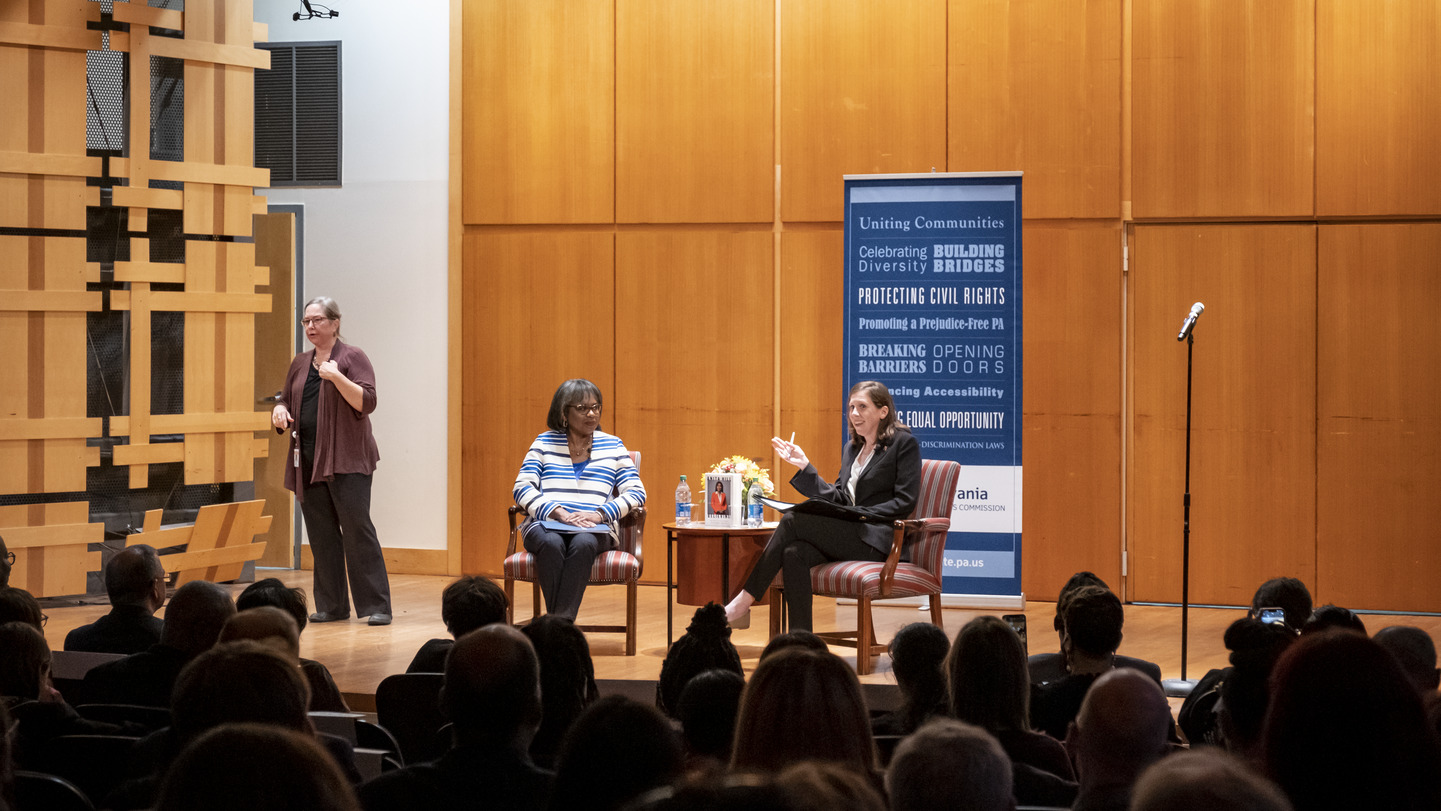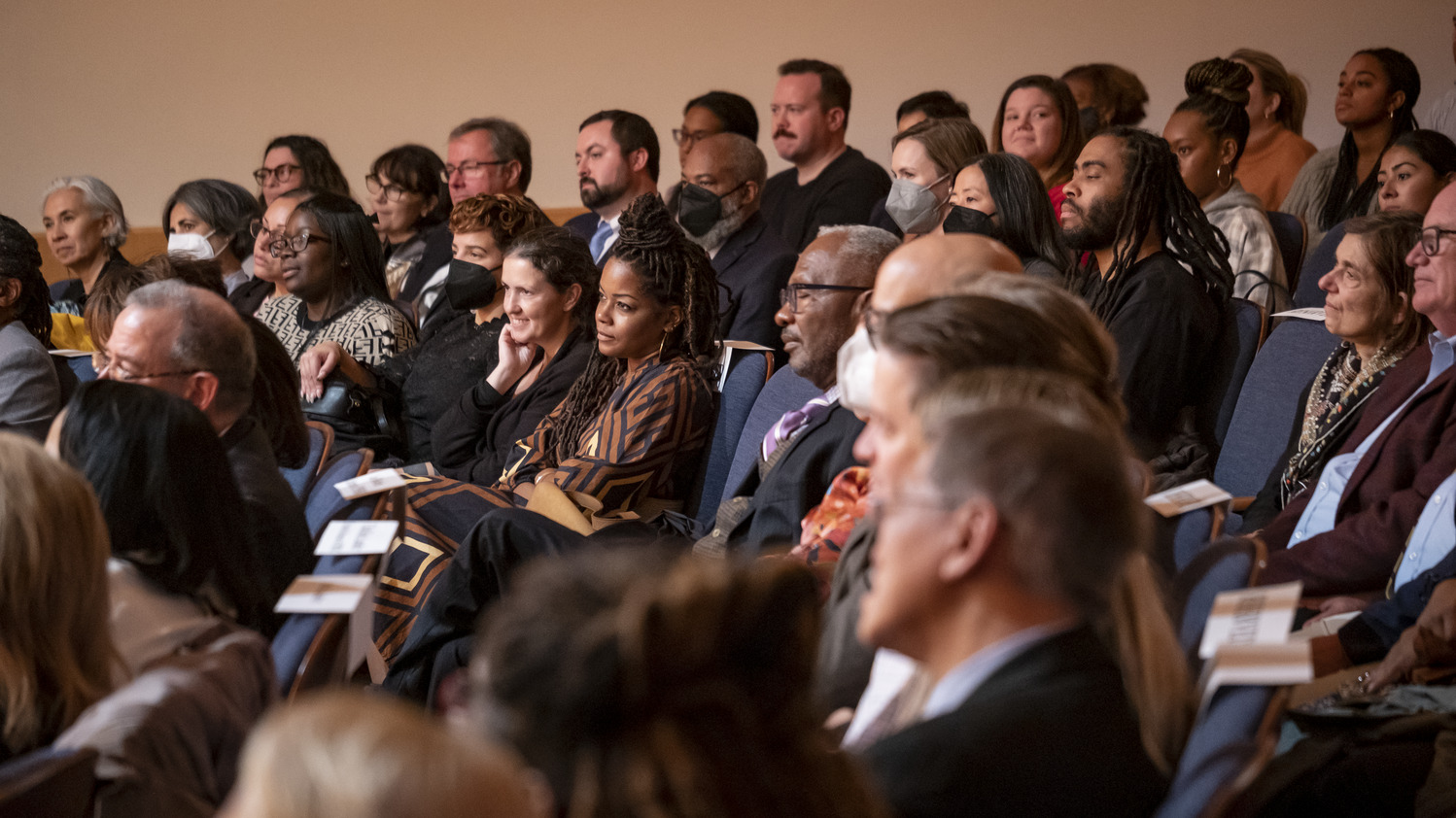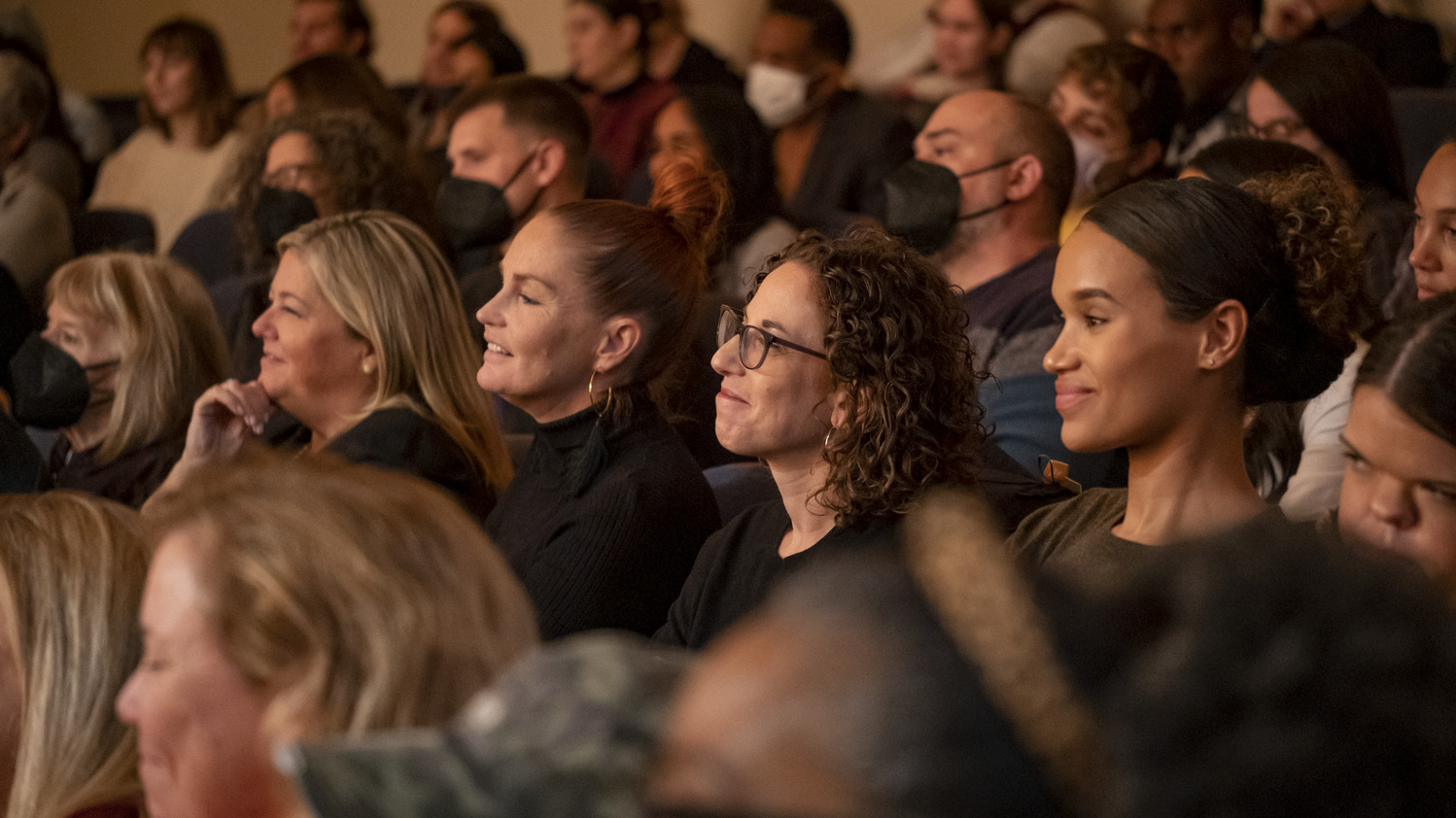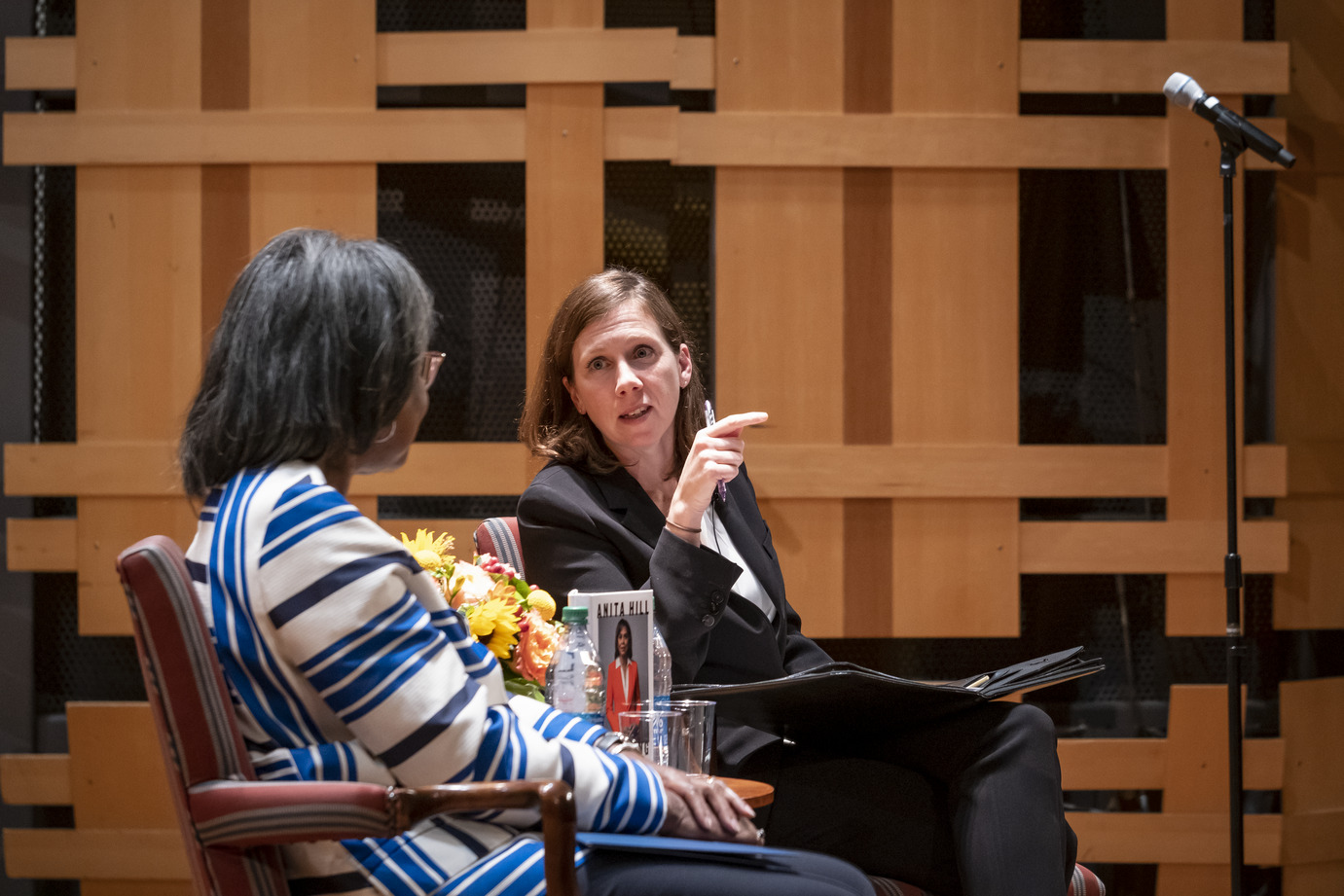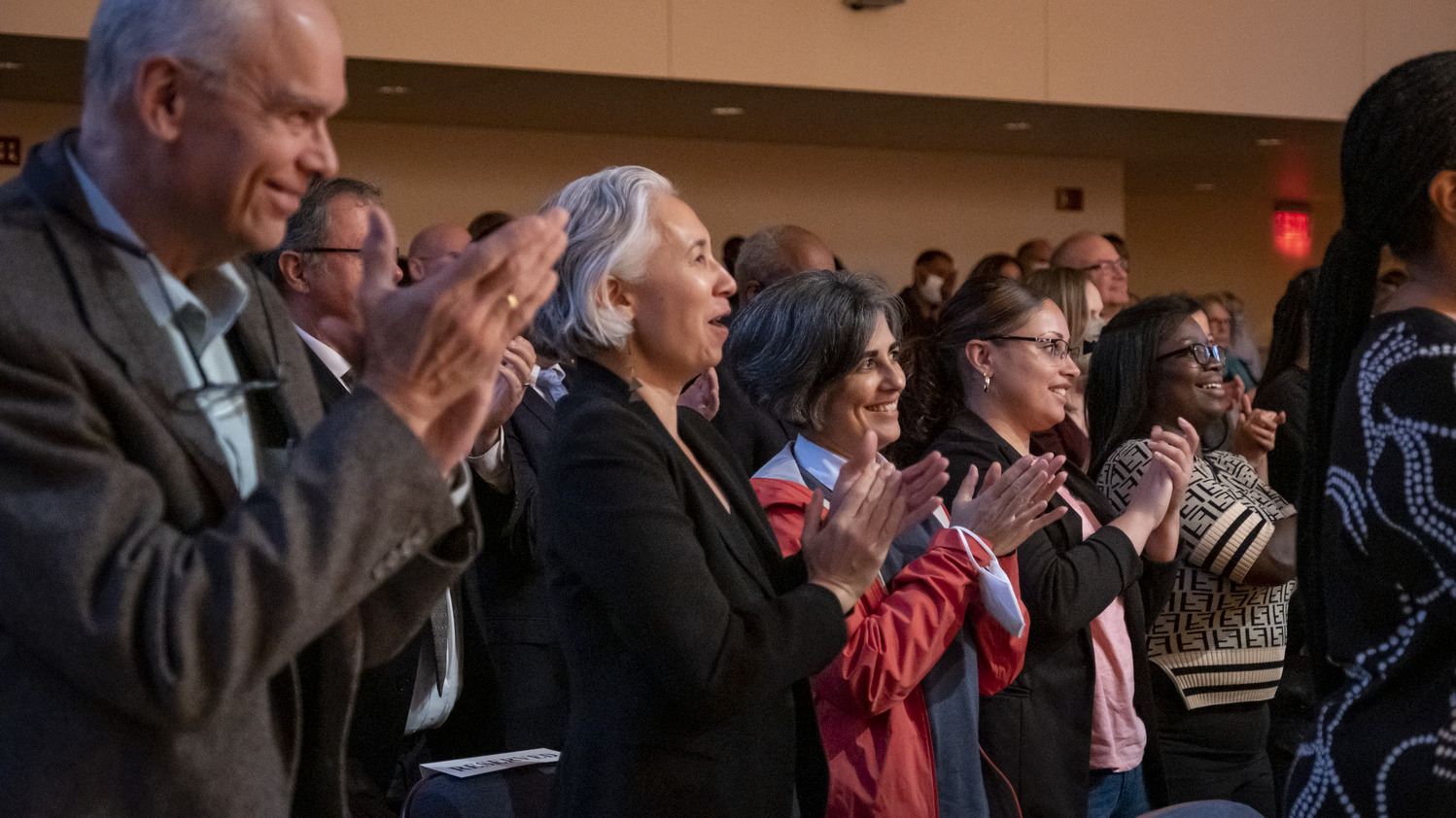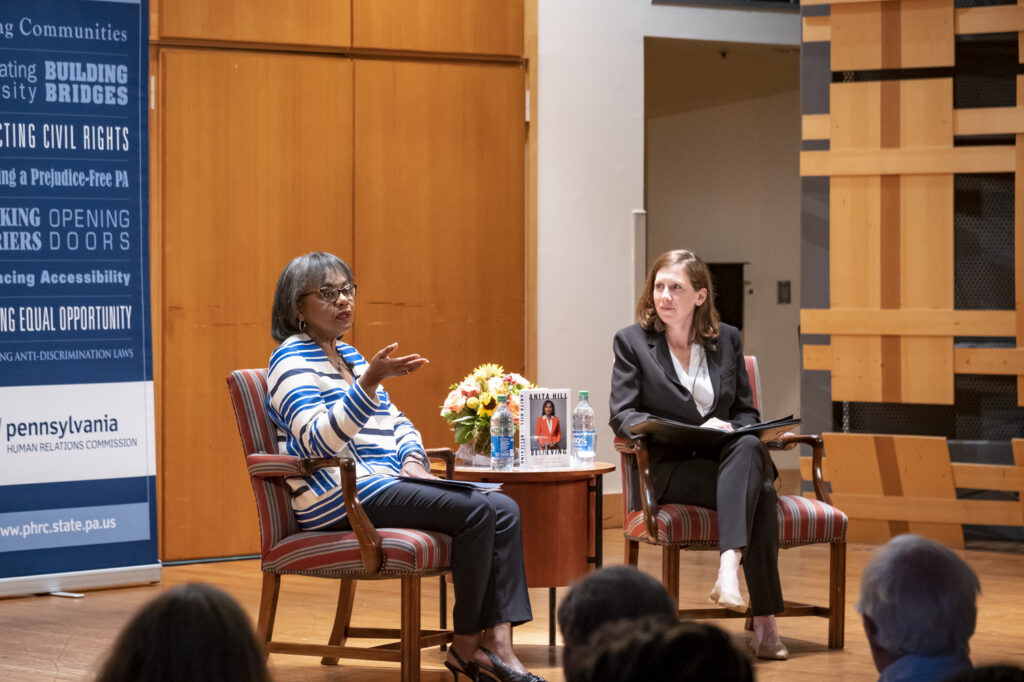Temple University Beasley School of Law, in partnership with the Pennsylvania Human Relations Commission, welcomed Anita Hill to campus as part of PHRC’s Social Justice Lecture Series. Professor Hill joined Dean Rachel Rebouché for an evening of conversation about her work to end gender violence, as chronicled in her book, Believing: Our Thirty-Year Journey to End Gender Violence.
Professor Hill and Dean Rebouché engaged in a wide-ranging discussion that addressed gender violence prevention, pay disparity, and the fight for gender justice. “Professor Hill’s commitment to telling her truth has shaped American history,” said Dean Rebouché, “Our students can draw from her example with the confidence that making the hard choices makes a difference.”
“Professor Hill is a legal giant and North Star in terms of professional and ethical decision-making,” said Dean Rebouché. Despite the evolution of societal attitudes towards harassment, there is still more work to be done. Together they discussed handling inevitable setbacks, noting that it’s what you do next that determines their impact on your course.
Associate Dean Donald Harris, who serves as Temple Law School’s DEI Liaison, noted Professor Hill’s call for structural and institutional reform, led by current leadership and focused on equity for the most marginalized members of their institutional communities. “Those who support equality have placed great faith in our youth, whose social and cultural norms are shifting in exciting ways,” he said. “But Professor Hill has charged us, and rightly so, with using our power and access now to ensure that succeeding generations will find our public institutions welcoming and supportive places. I came away from the evening energized and inspired to continue this work.”
Necessary systemic changes are only made possible through awareness, confronting the uncomfortable, and initiating difficult conversations. Professor Hill’s testimony is a powerful model for what lawyers can achieve through advocacy, honesty, and elevating the voices of the vulnerable.
